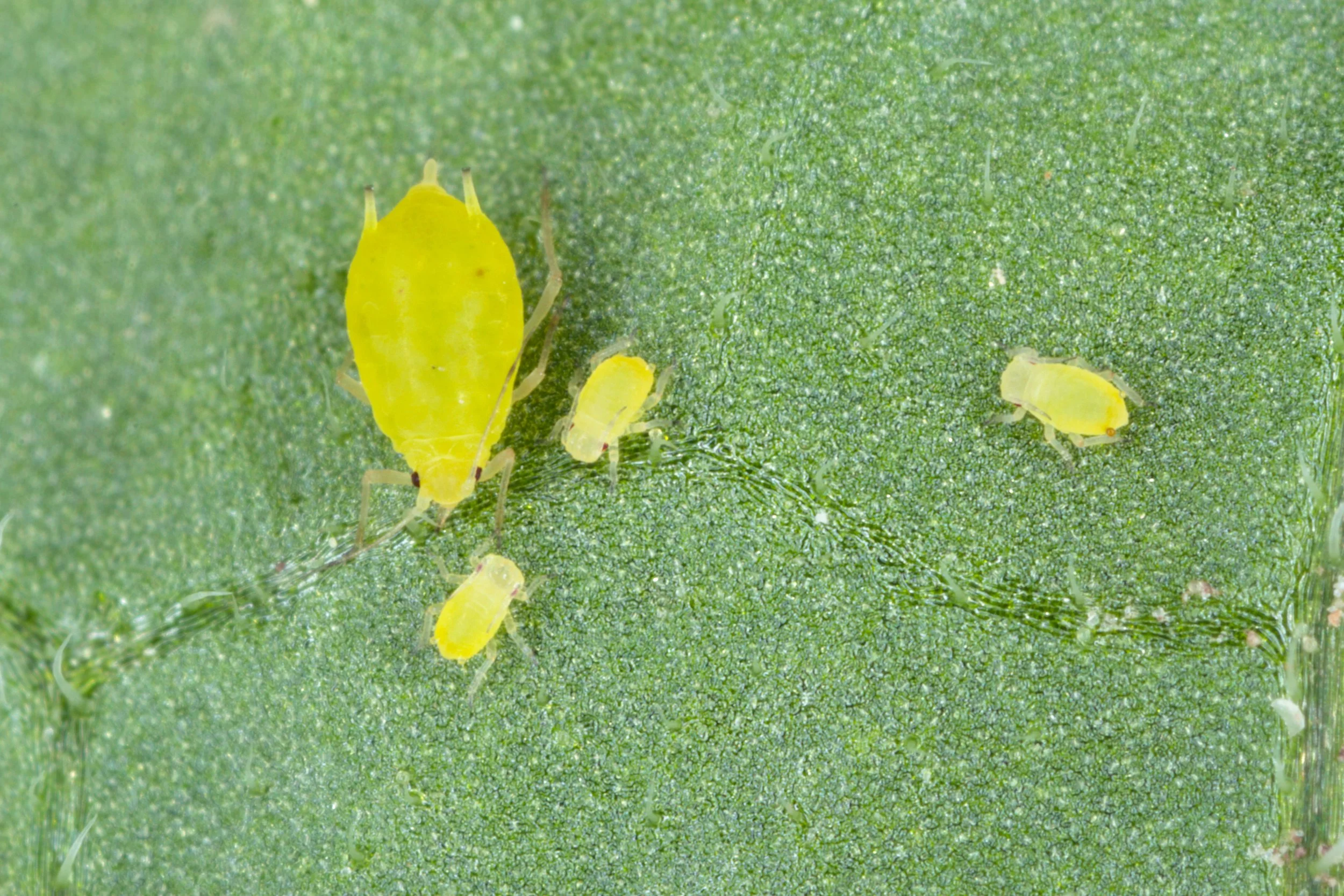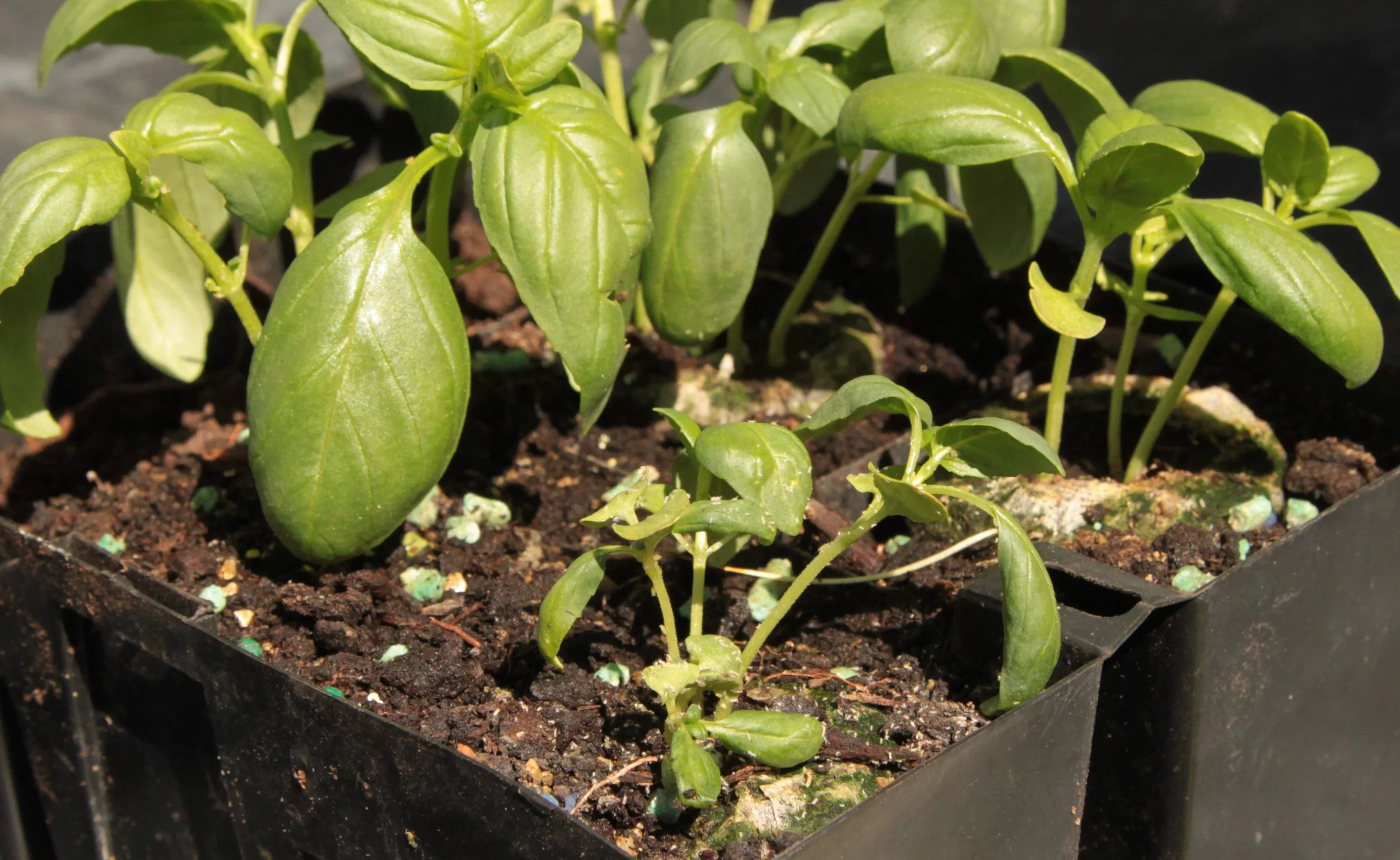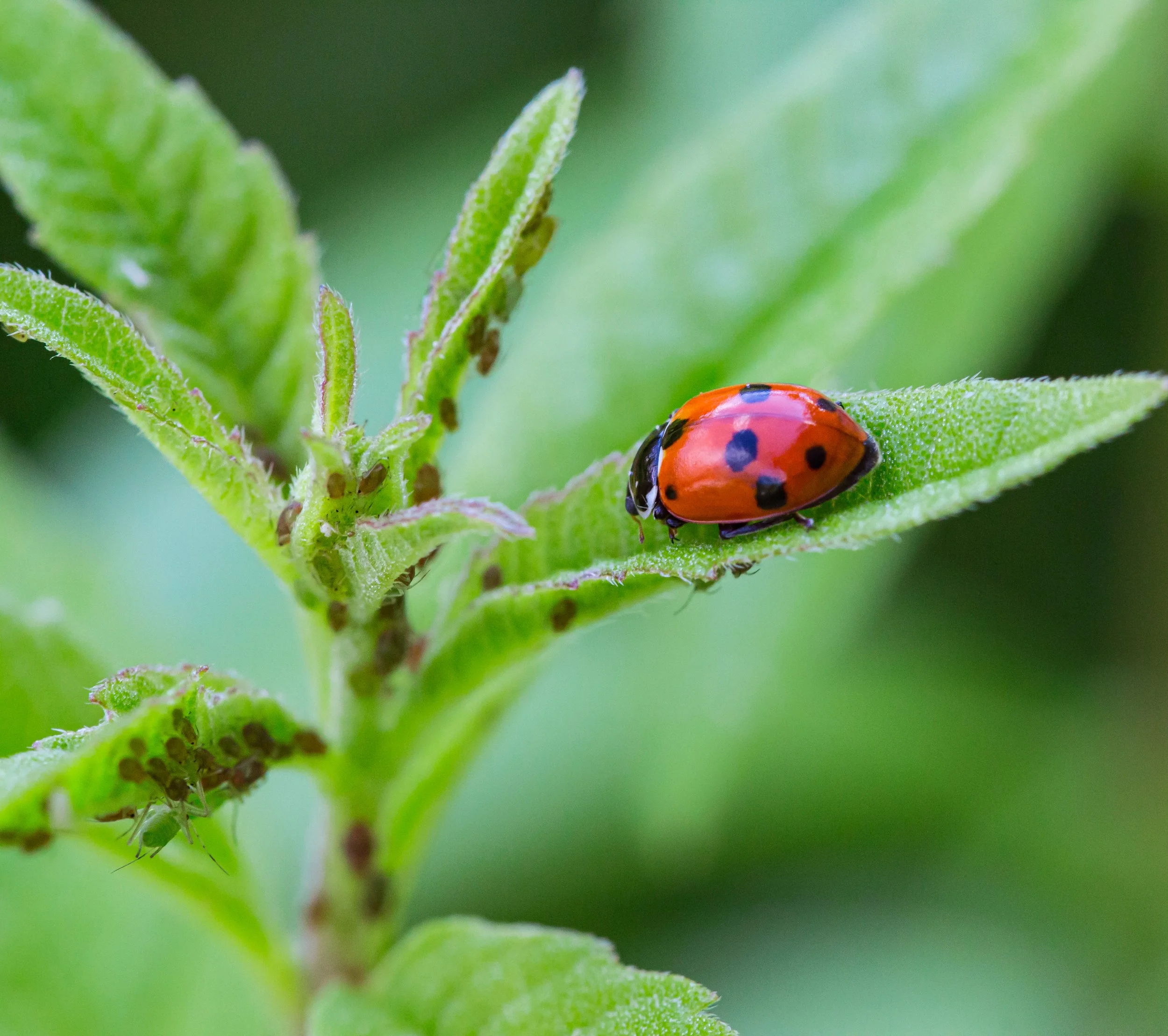Aphids
Aphids are one of the most common pests in the garden, which attack a wide range of plants. There are a number of different species of varying colour (black, brown, grey, green, mealy, white) each of which attack specific hosts at different times of the year. Apart from colour they are similar in appearance and usually found clustered on the soft young growing tips of plants.
Most aphids are capable of asexual reproduction. A female can give birth to several young in a day and each of the young, mature rapidly and are in turn capable of giving birth within days resulting in a rapid rate of increase. When present in large numbers the damage to young foliage from their sap sucking is considerable, resulting in severe distortion, stunting and wilting of foliage. Presence of aphids is obvious, but if not detected for some time, the only visible sign is severe distortion and stunting. When conditions for aphids are less favourable females form wings enabling them to fly to alternate hosts and await improved conditions.
In addition to the feeding damage, aphids are also vectors of plant viruses.
Aphids excrete a sticky honey dew on which black sooty mould grows causing disfigurement of plants. (Most sucking insects excrete honey dew to a greater or lesser extent) – black sooty mould grows on this honey dew.
Prevention
Prevention — Although aphids have natural predators such as ladybirds, and the odd resistant crop variety is becoming available, it is usually still necessary to use a pesticide to ensure a healthy crop There is no effective prevention method, although some insecticides have a repellent action. Checking for presence of aphids at least every second day in spring and autumn is advisable.
Control
Control — Sustainable best practice.
Apply an insecticide as below at the very first sign. If sprayed thoroughly one spray is usually sufficient.
Vegetables:- OCP ‘Eco-Oil’ plus a neem approved for edibles -OCP ‘Eco-Neem’, Grosafe ‘BioNeem’.
Fruit:- Grosafe Enspray 99 plus a neem approved for edibles -OCP ‘Eco-Neem, Grosafe BioNeem.
Ornamentals:- Grosafe ‘Enspray 99’ plus a neem approved for edibles -OCP Eco-Neem’, Grosafe ‘BioNeem’. For very heavy infestations or if other sucking insects are present (thrips, mealy bug, scale) apply Grosafe ‘Groventive’ – a systemic action which provides excellent control.
If chewing insects such as caterpillars are present add Yates ‘Mavrik’ or Yates ‘Success Ultra’.















